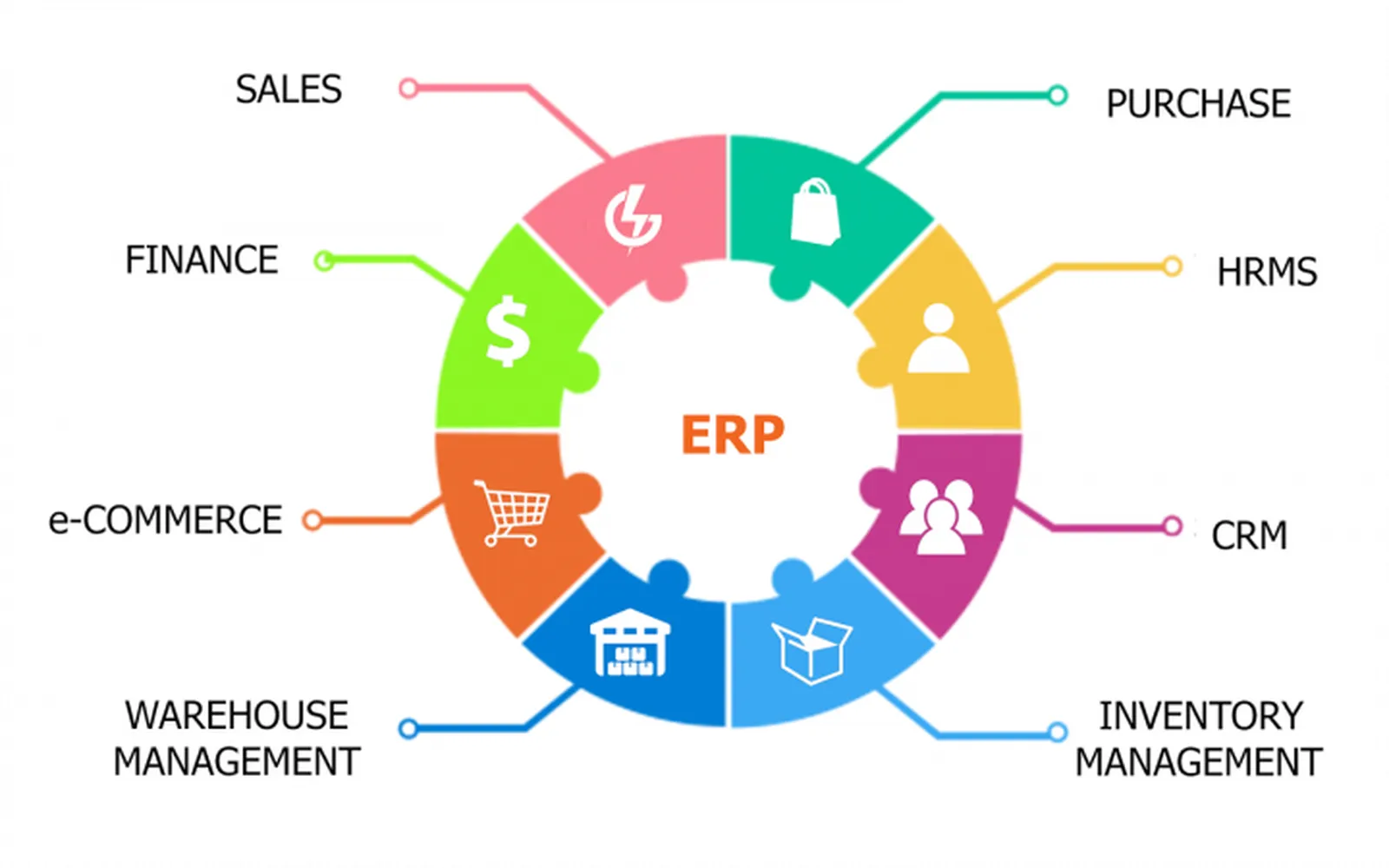Top Small Business Software for Efficiency & Growth
Introduction
In today's fast-paced business environment, small businesses are constantly seeking ways to optimize their operations, enhance efficiency, and foster growth. The right software tools can significantly streamline processes, improve communication, and provide valuable insights that drive decision-making. This article delves into some of the top small business software solutions that can help entrepreneurs and small business owners achieve their goals effectively.
1. Project Management Software
Project management software is essential for small businesses that handle numerous projects simultaneously. These tools help teams plan, execute, and monitor projects, ensuring that deadlines are met and resources are allocated effectively.
Asana: Asana is a popular choice for its user-friendly interface and flexible project tracking capabilities. Teams can create tasks, assign them to members, set deadlines, and track progress through various views, including lists and boards.
Trello: Trello uses a card-based system that allows users to organize tasks visually. It's particularly useful for small teams looking for a simple yet effective way to manage projects and collaborate in real-time.
Monday.com: This platform offers a highly customizable project management experience with various templates and automation options. It's ideal for businesses that require a tailored approach to their project workflows.
2. Accounting and Finance Software
Managing finances is crucial for any small business. Accounting software helps track income and expenses, generate financial reports, and streamline tax preparation.
QuickBooks: QuickBooks is one of the most widely used accounting software solutions for small businesses. It offers features like invoicing, expense tracking, payroll processing, and comprehensive reporting, making it suitable for businesses of all sizes.
Xero: Xero is known for its user-friendly design and robust features, including bank reconciliation, invoicing, and inventory management. It also allows for easy integration with various third-party applications.
FreshBooks: FreshBooks is particularly favored by service-based businesses for its excellent invoicing capabilities and time-tracking features. It simplifies billing and provides clients with professional invoices that enhance cash flow.
3. Customer Relationship Management (CRM) Software
CRM software helps businesses manage interactions with customers, streamline processes, and improve profitability. It provides valuable insights into customer behavior and preferences.
Salesforce: Salesforce is a leading CRM platform that offers a comprehensive suite of tools for sales, marketing, and customer service. Its customizable features make it suitable for various industries, and it integrates seamlessly with many other software applications.
HubSpot CRM: HubSpot offers a free CRM solution that is perfect for small businesses looking to manage customer relationships without a hefty investment. It provides tools for tracking sales activities, managing contacts, and nurturing leads.
Pipedrive: Pipedrive is designed with sales teams in mind, offering a visual pipeline interface that helps users track deals and manage leads effectively. Its intuitive design makes it easy for small teams to adopt and use.
4. Marketing Automation Software
Marketing automation software streamlines marketing efforts, allowing small businesses to manage campaigns, track customer engagement, and analyze results efficiently.
Mailchimp: Mailchimp is a widely-used email marketing platform that offers automation features, landing page creation, and audience segmentation tools. Its free tier is ideal for startups looking to establish their email marketing strategy.
Constant Contact: This platform is known for its easy-to-use interface and robust email marketing capabilities. It offers social media integration and event management tools, making it a versatile choice for small businesses.
ActiveCampaign: ActiveCampaign combines email marketing with CRM features, making it a powerful tool for managing customer relationships. Its automation capabilities allow businesses to create targeted campaigns based on user behavior.
5. E-commerce Platforms
For small businesses looking to sell products online, an effective e-commerce platform is crucial. These platforms provide the tools needed to set up an online store, manage inventory, and process payments.
Shopify: Shopify is a leading e-commerce platform that allows businesses to create and manage their online stores effortlessly. It offers a wide range of customizable templates, payment gateways, and inventory management tools.
WooCommerce: WooCommerce is a plugin for WordPress that turns a website into a fully functional online store. It's an excellent choice for businesses already using WordPress, offering flexibility and scalability.
BigCommerce: BigCommerce is designed for growth, providing advanced features like multi-channel selling and robust SEO capabilities. It's suitable for small businesses that anticipate scaling their operations in the future.
6. Communication and Collaboration Tools
Effective communication is paramount for collaboration in any business. Utilizing the right communication tools can enhance teamwork and ensure that information flows seamlessly across the organization.
Slack: Slack is a messaging platform that facilitates real-time communication among team members. It allows for organized channels, file sharing, and integrations with various other tools, making it ideal for remote teams.
Microsoft Teams: Microsoft Teams combines chat, video conferencing, and file sharing in one platform. It's particularly beneficial for businesses that already use Microsoft 365, as it integrates seamlessly with other Microsoft applications.
Zoom: Zoom has become synonymous with video conferencing. Its reliability and ease of use make it a popular choice for virtual meetings, webinars, and team collaboration.
7. Human Resource Management Software
Managing human resources effectively is critical for small businesses. HR software helps streamline recruitment, onboarding, payroll, and performance management processes.
Gusto: Gusto is an all-in-one HR platform that simplifies payroll, benefits administration, and compliance management. Its intuitive interface and robust features make it a favorite among small businesses.
BambooHR: BambooHR is designed specifically for small and medium-sized businesses, offering features such as applicant tracking, employee self-service, and performance management. Its user-friendly design makes it easy to navigate.
Zenefits: Zenefits provides a comprehensive HR solution, including employee onboarding, time tracking, and benefits administration. Its cloud-based platform allows for easy access and management of HR data.
8. File Storage and Document Management Software
Cloud-based file storage and document management solutions are essential for small businesses to safely store, share, and collaborate on important documents.
Google Workspace: Google Workspace (formerly G Suite) offers cloud storage through Google Drive, along with a suite of productivity applications like Docs, Sheets, and Slides. It's an excellent choice for teams needing real-time collaboration on documents.
Dropbox: Dropbox is a straightforward file storage and sharing platform that allows users to store files in the cloud and collaborate on documents easily. It's particularly useful for businesses that need to share large files securely.
Microsoft OneDrive: OneDrive integrates seamlessly with Microsoft 365 applications, providing cloud storage and file sharing capabilities. It's an ideal choice for businesses already using Microsoft products.
9. Inventory Management Software
For small businesses that sell physical products, efficient inventory management is crucial to avoid stockouts and overstock situations. Inventory management software helps track stock levels, manage orders, and forecast demand.
TradeGecko (now QuickBooks Commerce): TradeGecko offers inventory management solutions that integrate with various e-commerce platforms. It provides features like order management and real-time inventory tracking.
Zoho Inventory: Zoho Inventory is a cloud-based inventory management software that helps businesses manage their stock, sales, and purchases. Its integration with other Zoho applications enhances its functionality.
inFlow Inventory: inFlow Inventory is designed for small businesses, providing an easy-to-use interface for managing inventory, orders, and invoicing. It's suitable for businesses looking for a simple yet effective solution.
10. Analytics and Reporting Tools
Data-driven decision-making is crucial for the growth of small businesses. Analytics and reporting tools help businesses analyze their performance and identify areas for improvement.
Google Analytics: Google Analytics is a free web analytics tool that provides insights into website traffic, user behavior, and conversion rates. It’s essential for businesses looking to optimize their online presence.
Tableau: Tableau is a powerful data visualization tool that enables businesses to create interactive dashboards and reports. It helps in analyzing data and presenting it in a visually appealing manner.
Microsoft Power BI: Power BI offers robust data analytics and visualization capabilities. It integrates with various data sources, allowing small businesses to create insightful reports and dashboards easily.
Conclusion
In the competitive landscape of small businesses, leveraging the right software tools can make a significant difference in efficiency and growth. From project management to accounting, CRM, and marketing automation, there are numerous options available to suit various business needs. By investing in the right small business software, entrepreneurs can streamline their operations, enhance collaboration, and ultimately achieve their growth objectives.
As technology continues to evolve, small businesses should remain proactive in exploring new tools and solutions that can further enhance their efficiency and drive growth. By staying informed about the latest trends and innovations in the software landscape, small business owners can position themselves for long-term success.
Explore

Boost Your Small Business: The Ultimate Guide to WiFi Solutions for Growth and Connectivity

Unlocking Growth: The Ultimate Guide to the Best ERP Solutions for Small Businesses

Hybrid Cloud Computing: A Growth Strategy for Small Businesses

Top ERP Systems for Small Businesses: Streamline Your Operations and Boost Growth

Best Payroll Providers for Small Business Efficiency

Unlocking Growth: How Working Capital Loans Can Fuel Your Business Success

Contract Management Software for Healthcare: Streamlining Compliance and Efficiency

Unlocking Efficiency: The Power of a Managed Travel Program for Modern Businesses
